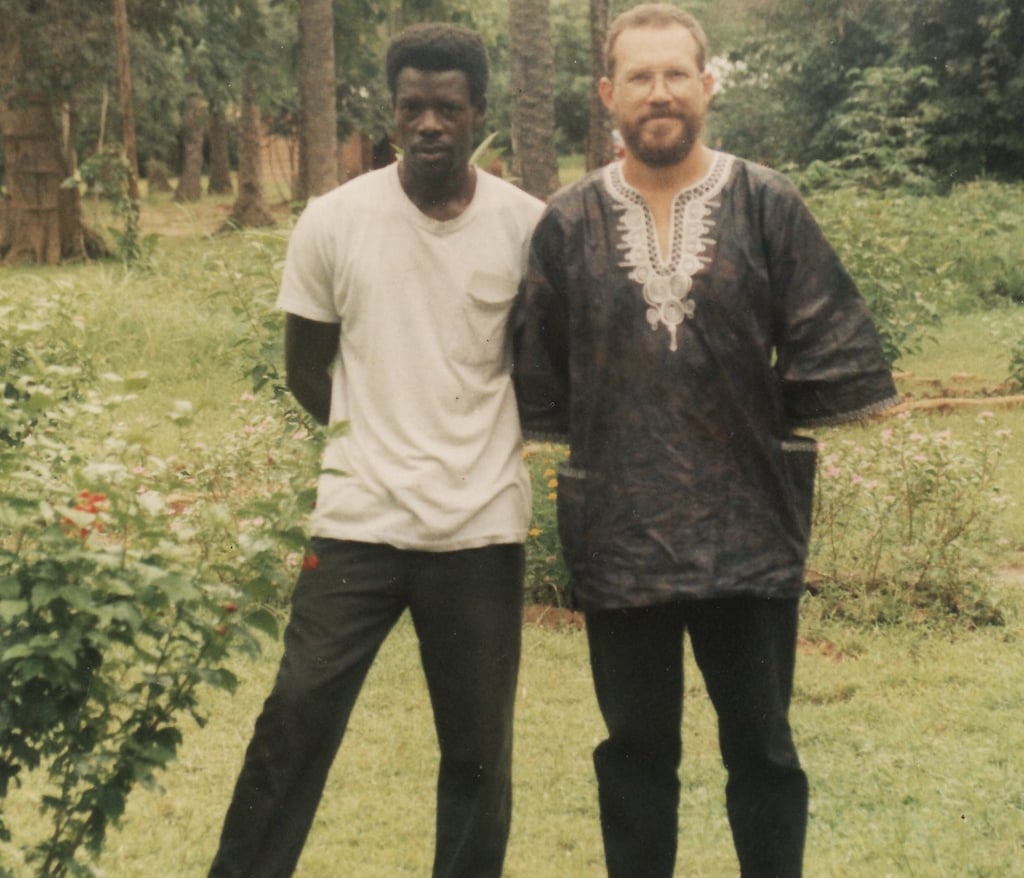
Learning "How" to Say No
Understanding culture requires insider help.
CULTURE LEARNINGWRITING ABOUT AFRICA
Daniel Dore
4/21/2024


Learning “How” to Say No
After gaining enough fluency in the French language, we moved from the town to a village. Here we needed to start learning the local African language. This was much harder, since there were no similarities with English, like we found in our French studies. But the cultural questions remained. Learning a new culture is full of misunderstandings and confusion. We all see things through the grid of our home culture. This is bound to cause problems.
We began to realize we needed to ask more questions. We needed to find help, instead of trying to figure things out for ourselves. (Pictured is my first language and culture helper from the village we lived in from 1995 to 1999.) After asking a village friend, “What do I say when someone asks for my hat, or shirt?” he answered, “Tell him it is your only one.”
This seemed simple enough. And it helped us to understand that saying no is offensive in our new cultural surroundings. However, to cause someone to suffer by taking his only hat was not acceptable. I was beginning to understand. But it gave me more questions. For the hat, it was not a problem. I had only one. I could honestly object, “It is my only hat.”
But what if I had other shirts at home? What would I say then? The village friend did not hesitate. The answer was clear: “Just say it is your only one!”
Hmmm. So, you’re saying that it is okay to lie? I guessed that it was more important in this culture to not offend someone by saying no, than to be honestly accurate. Basically, saying no is a no-no. You just don’t do it. Or you find creative ways to say no without saying no.
Another thing I learned was that you can say “It is not mine to give.” One time I gave a small radio to a village friend, and later found out that he had given it away. I did not understand. He was thrilled to have his own radio. Why would he just give it away? When I asked him, he simply said his older brother asked him for it. What? That’s all?
Seems in this culture you cannot refuse your older brother. Everyone knows he is the father of the family, at least he will be in time. In reality he is the next “father” when dad passes. It is interesting that there are two words for brother. One is specifically for a younger brother; the other is for an older brother. When the older brother asks for something, you can’t say no. You just give it.
I asked my village friend if I just loan him something, can he still give it away? He said no, he could then say it was not his to give. We had an out. From then on I would loan an item to a village friend instead of giving it. I wasn’t really going to ask for it back. The reason for calling it a loan was to protect the villager from being forced to give it away when asked.
Speaking of loans, I found that if someone asked to use your shovel, you complied. My expectation, from my home culture, was that when the job was done, in a day or two, the shovel would be returned. Not so in this village. I would wait for a week or two, then, thinking it was lost or stolen (or given away?) I would go looking for it.
“Hey, do you still have my shovel?”
“Yes, it’s right here.”
“Are you done with the job?”
“Yes.”
“Can I have it back now?”
“Do you have a job needing it now?”
“No, I just want it back.”
“Umm, okay, here.”
He reluctantly gives it back. He is confused. I am confused.
Did I say that learning a new culture is full of misunderstandings and confusion?
Then there is the subject of reciprocity. The give and take of village life. But that is a subject for another blogpost.
Jesus said, “Give to everyone who asks of you, and whoever takes what is yours, do not demand it back. Treat others the same way you want them to treat you. If you love those who love you, what credit is that to you? For even sinners love those who love them. If you do good to those who do good to you, what credit is that to you? For even sinners do the same. If you lend to those from whom you expect to receive, what credit is that to you? Even sinners lend to sinners in order to receive back the same amount. But love your enemies, and do good, and lend, expecting nothing in return; and your reward will be great, and you will be the sons of the Most High; for He Himself is kind to ungrateful and evil men. Be merciful, just as your Father is merciful.” (Luke 6:30-36.)

